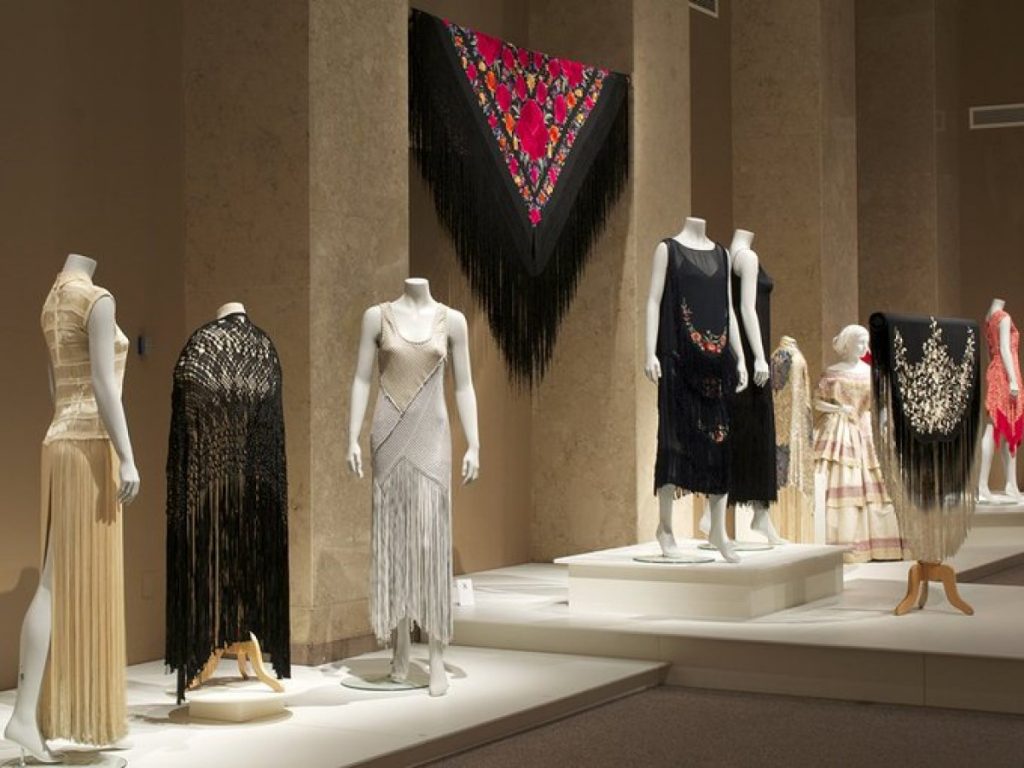Fringe Elements
From leather strips to silken tassels, fringe takes an array of different forms. Fringe is one of the most basic forms of ornamentation on textiles since it is a natural finish for weaving. When threads of the warp extend beyond the last weft threads they create a fringe. While originally an integral part of the textile, most fringe is now applied separately to the garment. The beauty of fringe often derives from its motion. The loose threads swing and sway at the slightest movement. Although the pieces on exhibit are still, the drama and energy of fringe remains apparent. This exhibition assembles examples of fringe on costumes and textiles from around the world. While the uses of fringe are remarkably diverse, there are certain categories that emerge across national and cultural boundaries. Leather fringe can be found on Native American dress, Spanish equestrian wear and also suits from the 1960s counterculture. Long silken fringe adorned dresses from the Jazz Age, shawls exported from China and ornate costumes from the Victorian period. This exhibition highlights both the great diversity in fringe but also the surprising links between seemingly disparate cultures.
Image courtesy of Kent State University, Kent, USA
